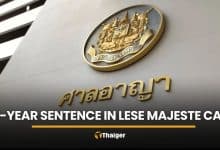Sunak and Johnson clash over blocked peerage nominations amid resignations

A heated exchange has unfolded between Rishi Sunak and Boris Johnson regarding the latter’s attempt to award peerages to several close allies. Sunak accused his predecessor of requesting him to “overrule” the vetting advice on his House of Lords nominations. In response, Johnson accused Sunak of “talking rubbish.” The House of Lords Appointments Commission (HOLAC) disclosed that it had rejected eight of Johnson’s nominations, though the identities of the nominees and reasons for their exclusion have not been confirmed.
A Cabinet Office spokesperson revealed that HOLAC did not support the peerage nominations of MPs proposed by Johnson. The honours list, published by Sunak’s government, excluded some of Johnson’s key supporters, such as Conservative MPs Nadine Dorries and Nigel Adams. Shortly after the honours list’s release, Johnson announced his resignation as an MP due to an investigation into whether he misled Parliament about lockdown parties.
Both Adams and Dorries have announced their immediate resignation as MPs, triggering by-elections for their replacements. Sunak claimed that Johnson asked him to do “something I wasn’t prepared to do” regarding peerage nominations, while Johnson argued that it “was not necessary to overrule HOLAC – but simply to ask them to renew their vetting, which was a mere formality.”
The disagreement over peerage nominations has heightened tensions between Sunak and Johnson, whose relationship has been uneasy since Sunak resigned as chancellor in Johnson’s government, sparking a series of resignations that led to Johnson’s downfall as prime minister. The vetting process for Johnson’s nominees appears to be a point of contention between the former allies.
HOLAC’s vetting checks expire after six months, meaning its advice on nominations is only valid for that period. In his statement, Johnson seemed to suggest that the vetting checks for his nominees could be carried out again. In an interview with TalkTV, Dorries accused Downing Street of not being “telling the truth” about her nomination for a peerage. She claimed that Johnson had informed her in autumn last year that she had been placed on his resignation honours list.
Dorries revealed that she had been vetted for the peerage, but her checks had expired after six months. She alleged that Sunak and Johnson had a meeting last week to discuss the honours list, accusing the prime minister of using “weasel words” to give Johnson the impression that Sunak would ask HOLAC to restart the vetting process. Dorries believed that Sunak used those words because he “knew a situation had been engineered” in which her name would not be on the list. When asked who she thought had prevented her from entering the House of Lords, she replied: “The prime minister – Rishi Sunak.”
Following Dorries’ interview, the Cabinet Office stated that it would be “unprecedented for a sitting prime minister to invite HOLAC to reconsider the vetting of individual nominees on a former prime minister’s resignation list. It is not, therefore, a formality.” As a departing prime minister, Johnson has the right to nominate individuals for seats in the House of Lords and other honours such as knighthoods. By convention, current prime ministers pass on the list of nominees to HOLAC, which can recommend their names not to proceed after a vetting process.
HOLAC advises prime ministers on the suitability of candidates for peerages, and they typically accept its recommendations on appointments, regardless of the outcome. However, Johnson broke this convention in 2020 when he nominated businessman Peter Cruddas for a peerage, despite his rejection by HOLAC. A spokesman for the vetting commission confirmed that it had rejected eight of Johnson’s nominations but declined to name them or explain why, adding that it “does not comment on individuals.”
Downing Street maintains that Sunak passed on Johnson’s list of nominations unaltered and accepted HOLAC’s full approved list, passing it to the King. However, a source identifying themselves as an ally of Johnson accused the prime minister of “secretly” blocking peerages for “Nadine and others.” The source added, “He refused to ask for them to undergo basic checks that could have taken only a few weeks or even days. That is how he kept them off the list – without telling Boris Johnson.”
Latest Thailand News
Follow The Thaiger on Google News:


























